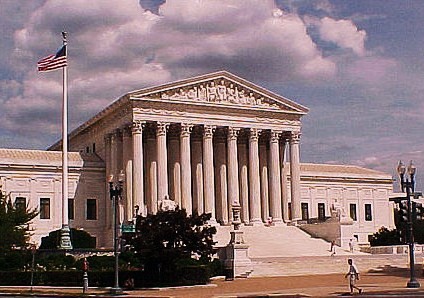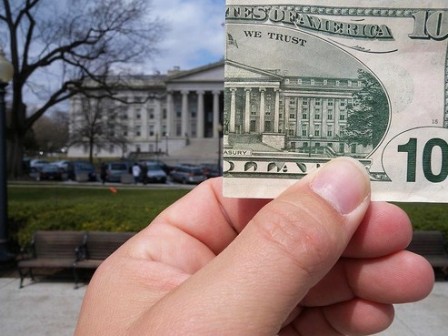Corporations’ “Right To Privacy” Versus Freedom Of Information Act
The Supreme Court is back in session, and has agreed to hear the case Federal Communications Commission V. AT & T. This case, if won by AT & T would be a judicial disaster and could make the Freedom Of Information Act completely toothless by expanding an exemption to disclosure for documents that “invade personal privacy”.
The Freedom Of Information Act (FOIA), enacted in 1966, was originally intended to promote transparency by allowing and sometime even forcing disclosure of government documents. In the case FCC v. AT &T, the telecommunication giant is seeking to preserve a lower court ruling, which used the argument that the release of the records by AT & T could result in “an unwarranted invasion of personal privacy”.
But groups defending the public interest, with Public Citizen in the lead, argued that such an expansion to the right of privacy would permit to keep a “veil of secrecy” to cover records that are at the core of the FOIA’s disclosure goals. In light of recent large scale corporate scandals in the headlines, Public Citizen extended their argument to Goldman Sachs, BP and Massey Coal.
According to Public Citizen, if companies like Goldman Sachs, BP and Massey Coal can interject a claim of ‘corporate privacy’ into an exemption designed to recognize only ‘valid governmental and individual confidentiality’ , then each time a request is made for records, concerning newsworthy topics like the economic collapse, the oil spill, and the coal mine explosion, delay and even complete withholding could result despite the Freedom of Information Act.
Back in May 2010, Public Citizen and five others public interest organizations, made the argument that corporations do not have personal privacy right as far as government records. Corporations should not be able to claim a personal privacy right to shield government documents from public scrutiny. In the case of FCC v. AT & T, the FCC had concluded that the Freedom Of Information Act required the agency to release to the public certain records concerning its investigation of AT &T for alleged over-billing of the government.
Unless the Supreme Court reverses the Third Circuit Court decision, records about safety violations at a coal mine, major environmental problem created by an oil rig, and giant financial Ponzi schemes cooked up by an investment bank, and many other records like these, could be subject of so-called “corporate privacy” claims that would result in government agencies withholding these records from the public despite the Freedom Of Information Act.
Public Citizen advocates for the defense of democracy, resisting corporate power, and for a “healthier and more equitable world by making governments work for the people and by defending democracy from corporate greed”.
Related Articles















2 Responses to Corporations’ “Right To Privacy” Versus Freedom Of Information Act
You must be logged in to post a comment Login